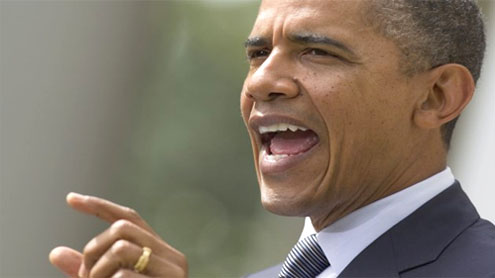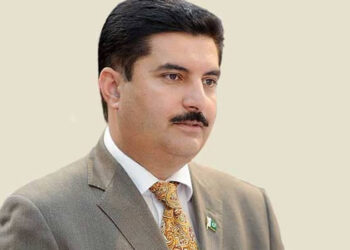 President Barack Obama leaves on Friday for Hawaii, where he will host the Asia-Pacific Economic Cooperation [APEC] leaders summit.
President Barack Obama leaves on Friday for Hawaii, where he will host the Asia-Pacific Economic Cooperation [APEC] leaders summit.
The APEC meeting, along with Mr. Obama’s travels to Australia and a summit of East Asian leaders in Indonesia, are part of the president’s effort to reassure allies and economic partners of America’s commitment to remain a major power in the Pacific region.U.S. officials have sketched a multi-faceted effort by Mr. Obama to underscore U.S. economic and security engagements and the importance of key alliances that he will reinforce at the two summits, in bilateral talks, and his visit to Australia.
White House Press Secretary Jay Carney recently spoke about another key purpose for the president’s trip, to reinforce the link between the Asia-Pacific region, and U.S. economic recovery and job creation.”The APEC summit as well as the East Asia summit, and the other elements of this trip reinforce this president’s commitment to the kind of rebalancing and refocus that he has long-believed is necessary. And it goes right on the economic front to his goal to double our exports and increase our trade, specifically with the countries in the Asia-Pacific region,” Carney said.Mr. Obama’s first stop in San Diego, California to attend a Veterans Day holiday college basketball game on the aircraft carrier USS Carl Vinson. Osama bin Laden’s body was buried at sea from the carrier in May.
On Saturday in Hawaii, the president is scheduled to host a meeting of nine nations in APEC, negotiating a smaller emerging free trade group called the Trans-Pacific Partnership.APEC set a goal in 1994 of achieving free and open trade and investment in Asia-Pacific industrialized economies by 2010, and in developing economies no later than 2020.The president will hold the first bilateral meetings of his trip, with Japanese Prime Minister Yoshihiko Noda, Russian President Dmitry Medvedev, and Chinese President Hu Jintao. Mr. Obama’s state visit to Australia will spotlight the strength of the bilateral alliance on the 60th anniversary of the ANZUS Treaty. He is scheduled to address Parliament in Canberra, visit Darwin in the north, and address Australian troops.
Although White House officials will not confirm it, Mr. Obama and Australian Prime Minister Julia Gillard are expected to announce a new agreement to give the U.S. military expanded access to Australian military bases.In Bali next week, Mr. Obama will attend a series of bilateral meetings with regional leaders, beginning with Indian Prime Minister Manmohan Singh.U.S. Asia-Pacific strategy includes an effort to encourage India’s “Look East” policy. Deputy Secretary of State William Burns spoke about it at a recent discussion here in Washington.
“The president has said that India will be one of the defining partnerships of the 21st century. We also want it to be one of the defining partnerships in the Asia-Pacific,” Burns said.In contrast to the APEC meeting, which will focus on economic issues, the East Asia summit will deal with political and security challenges.Analysts say regional worries over Chinese intentions in the South China Sea will be among issues on the minds of leaders in Bali.
Michael Green of the Washington-based Center for Strategic and International Studies says the summit will be a delicate balance of concerns, sensitivities and agendas.”What a lot of the members of the East Asia summit will want is for us to speak softly and carry a big stick [i.e., pursue diplomacy while maintaining U.S. military commitments]. They are going to want us to be clearly there maintaining a stable balance as they trade with China and with us. But they are not going to want us to wave that stick in China’s face and put them in a difficult position.”
Mr. Obama is scheduled to return to Washington only a few days before a November 23 deadline for a congressional committee to agree on $1.2 trillion in government spending cuts, with wide-ranging implications for the U.S. economic recovery.White House Deputy National Security Adviser Ben Rhodes says Mr. Obama knows that Asia-Pacific leaders will be watching the situation in Washington, but that Mr. Obama will bear assurances that the United States will continue to play an indispensable role in the region, even during a time of tight federal budgets. – Voanews












